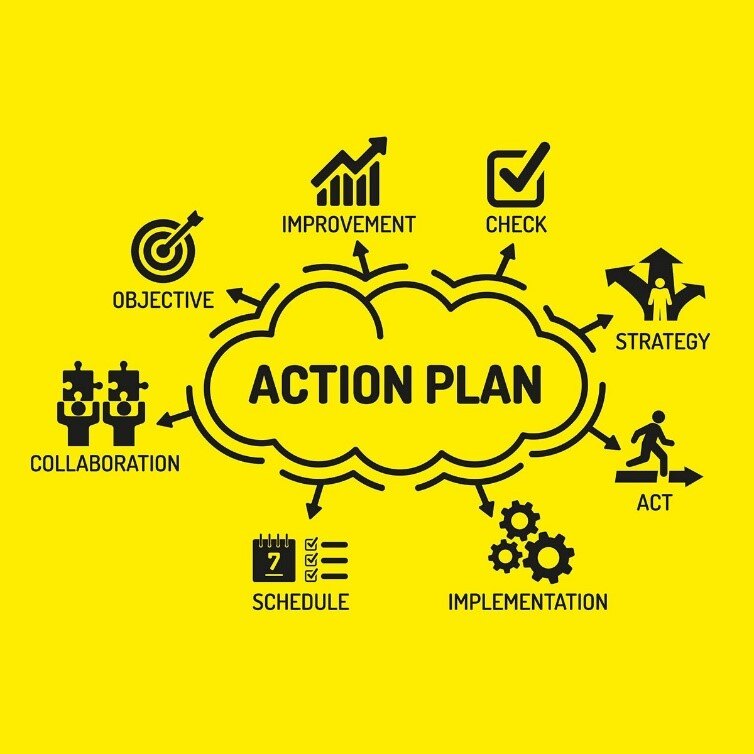Continue selling in your CRM marketing, even when you are very busy
Many projects may require more time than you actually have, but this cannot be an excuse to stop your marketing initiatives. Use the benefits of...
By Role
By Industry
By Target Customer
What We Offer
We drive business growth by improving operational efficiency through process optimization, smart automation, and cost control. Our approach boosts productivity, reduces expenses, and increases profitability with scalable, sustainable solutions
Customer Experience
We design memorable, customer-centered experiences that drive loyalty, enhance support, and optimize every stage of the journey. From maturity frameworks and experience maps to loyalty programs, service design, and feedback analysis, we help brands deeply connect with users and grow sustainably.
Marketing & Sales
We drive marketing and sales strategies that combine technology, creativity, and analytics to accelerate growth. From value proposition design and AI-driven automation to inbound, ABM, and sales enablement strategies, we help businesses attract, convert, and retain customers effectively and profitably.
Pricing & Revenue
We optimize pricing and revenue through data-driven strategies and integrated planning. From profitability modeling and margin analysis to demand management and sales forecasting, we help maximize financial performance and business competitiveness.
Digital Transformation
We accelerate digital transformation by aligning strategy, processes and technology. From operating model definition and intelligent automation to CRM implementation, artificial intelligence and digital channels, we help organizations adapt, scale and lead in changing and competitive environments.
Operational Efficiency
We enhance operational efficiency through process optimization, intelligent automation, and cost control. From cost reduction strategies and process redesign to RPA and value analysis, we help businesses boost productivity, agility, and sustainable profitability.
Customer Experience
Marketing & Sales
Pricing & Revenue
Digital Transformation
Operational Efficiency
When implementing a new software or tool for the company, we always want it to be done in the most optimal way and to make the most of everything it has to offer. In the end, the investment is not only money but also time, energy, and resources.
We know that, like any tool, the value of a CRM system depends on how well it is implemented. And not knowing the right steps to take could cost you more than you think. Here are 5 steps to follow for a successful implementation:
Index
Before purchasing any software, tool, or resource you really need to find out what you need. Implementing a CRM should not only be about making sure your customers are being served, but also about ensuring that your business processes are as efficient and effective as possible.
Therefore, it is time for an interview with your business. For this, you should ask yourself some questions related to generalities, sales process, marketing, and customer service. Here are a few that might help you get started:
General questions:
Questions related to the sales process:
Questions related to marketing and its impact on sales:
We invite you to read more about marketing and sales alignment on our blog: Smarketing: Tips to align Marketing and Sales
Questions related to customer service:
Once you have answered these questions, you will know how to pick your battles. Purchasing a tool without considering the needs of the business can result in the implementation not meeting expectations. Therefore, focusing on solving your problems will help you find the best tool to solve them, rather than choosing a tool with shiny features that only solve half of your needs in the end.
By now you should have a list of things that will help you solve your new CRM. So, what you need to do now is to find the best option that meets those requirements. It is time to go to the next step.

Now that you know what you hope to achieve, it's time to find out which is the best option. Along with the features you need for your business, take note of things like pricing or whether the system integrates with other applications you are using or considering using in the future.
There are several CRM options, take the time to research exactly what you want to help solve your CRM, we advise making a list of possible vendors and evaluate them according to their features, capabilities, requirements, available modules, or add-on compatibility. In addition, it is important to consider the vendor's strength and experience in the market and whether they have help or support material in case problems or queries arise.
Remember to understand the various costs associated with implementation, assessing the number of users who will use the system and the features you need is essential to ensure that costs are within your budget. Ask yourself:
Many businesses starting their journey with a new CRM implement a simple solution on their own, and while self-implementing CRM can be cost-effective in the short term, we advise you to have an experienced implementation partner to help you get the most out of the tool by helping you efficiently design and customize the solution to meet the organization’s needs, integrate it with other business systems, and provide training and support for improved success.
>> 3 Key Tools for a Healthy Digital Transformation <<

Data is the new oil and a vital element of your CRM. Therefore, it must be clean, viable and accurate. Whether the implementation takes a short period of time or much longer depends on this.
If, on the other hand, you do not have any customer information now, it is the right time to sort out what kind of information you need to have and how you can get it.
Read more about what you can do with your CRM data
According to a Salesforce study, 70% of customer data becomes outdated or inaccurate annually, and this data can cost companies big losses. For example, DiscoverOrg conducted a study and found that sales and marketing departments were losing approximately 550 hours and up to $32,000 per sales rep per year.
In short, the right data will give you better results, here are some recommendations for auditing your database:
Storing correct and audited data in a CRM will help you in your daily tasks in the following ways:
I invite you to review your contact database so that you can move your records smoothly to your new home.

Implementing a new tool or software can be challenging, not only because of the process that the system itself entails, but also because of changes in staff logistics. An abrupt implementation can cause your staff to feel overwhelmed by the new system, which greatly increases the likelihood of CRM failure due to low user adoption rates.
Therefore, we advise you to follow these steps for each of the phases:
Involve all project participants and provide them with the necessary impetus, explanations, and strategic guidance for the implementation. You can do this by doing the following:
This analysis consists of identifying how the CRM will contribute to improve or automate the different tasks of your direct use

Many projects may require more time than you actually have, but this cannot be an excuse to stop your marketing initiatives. Use the benefits of...

When marketing managers consider how to build direct and lasting relationships with customers, they often think of CRM and loyalty initiatives as...

Consumer buying habits have changed. Now users have control over the process and have many sources of information, which makes them more...